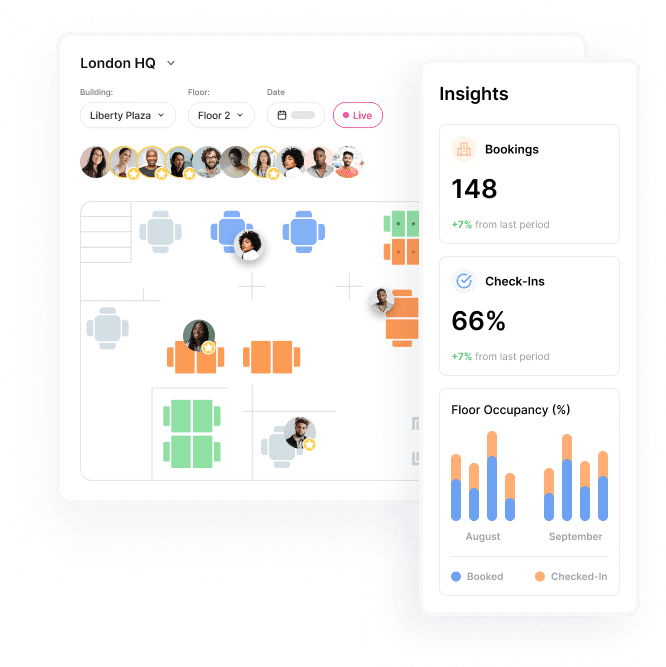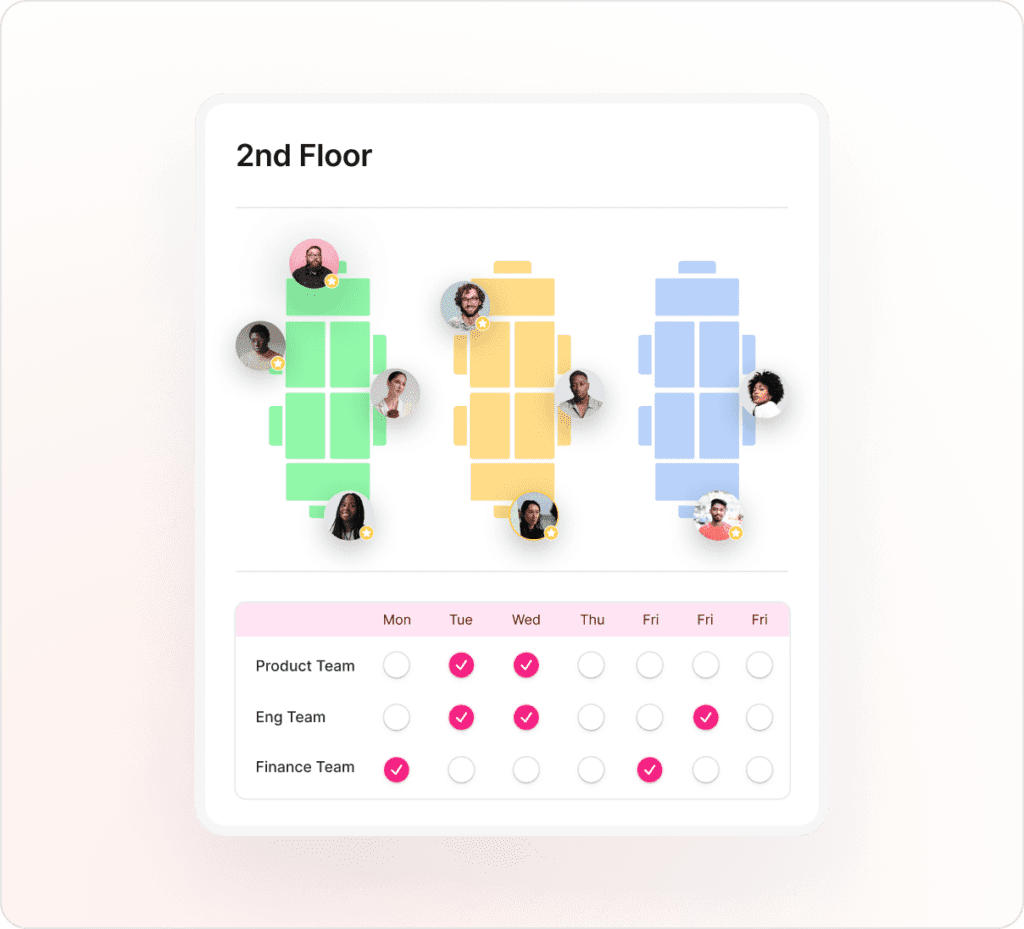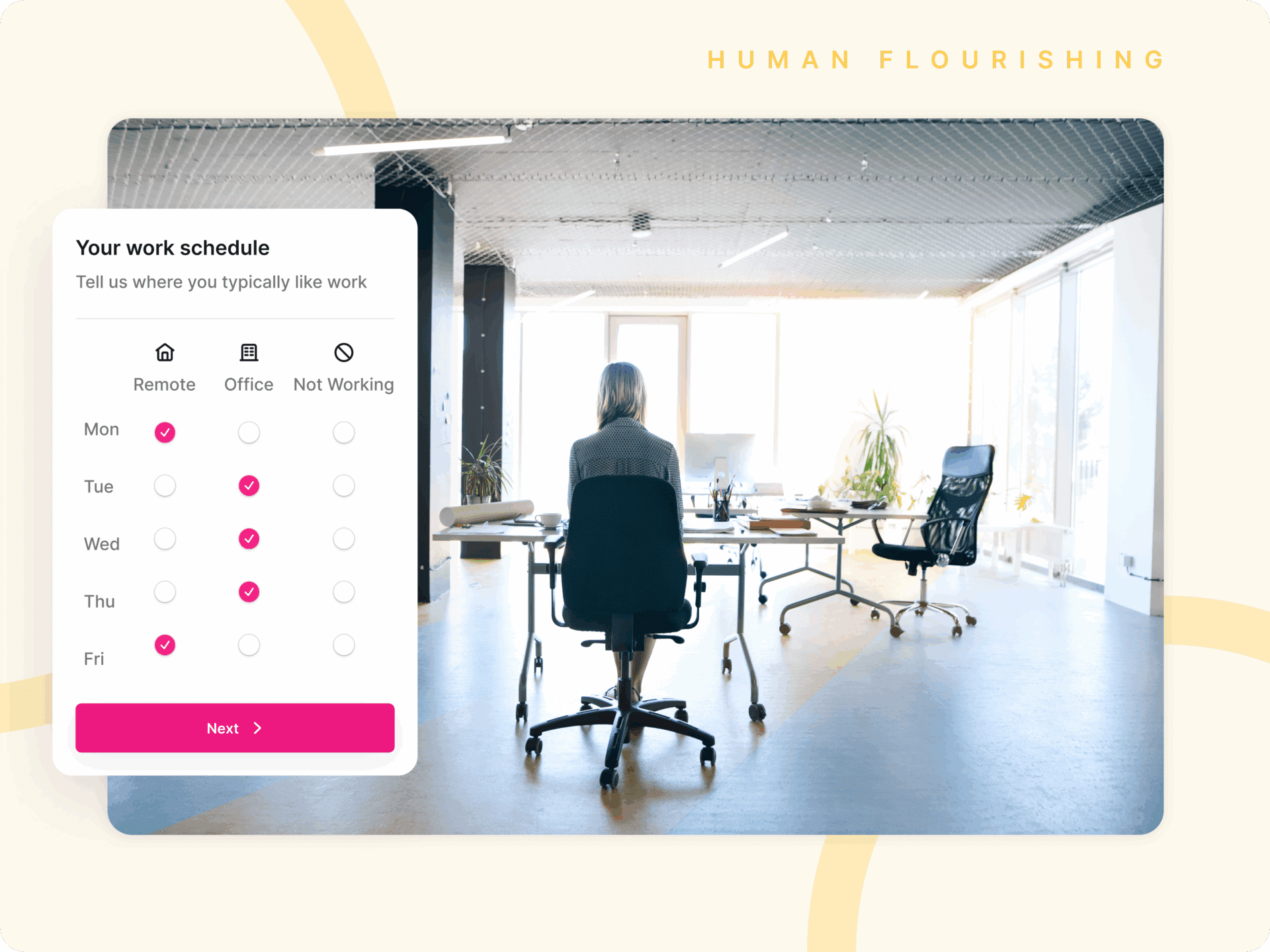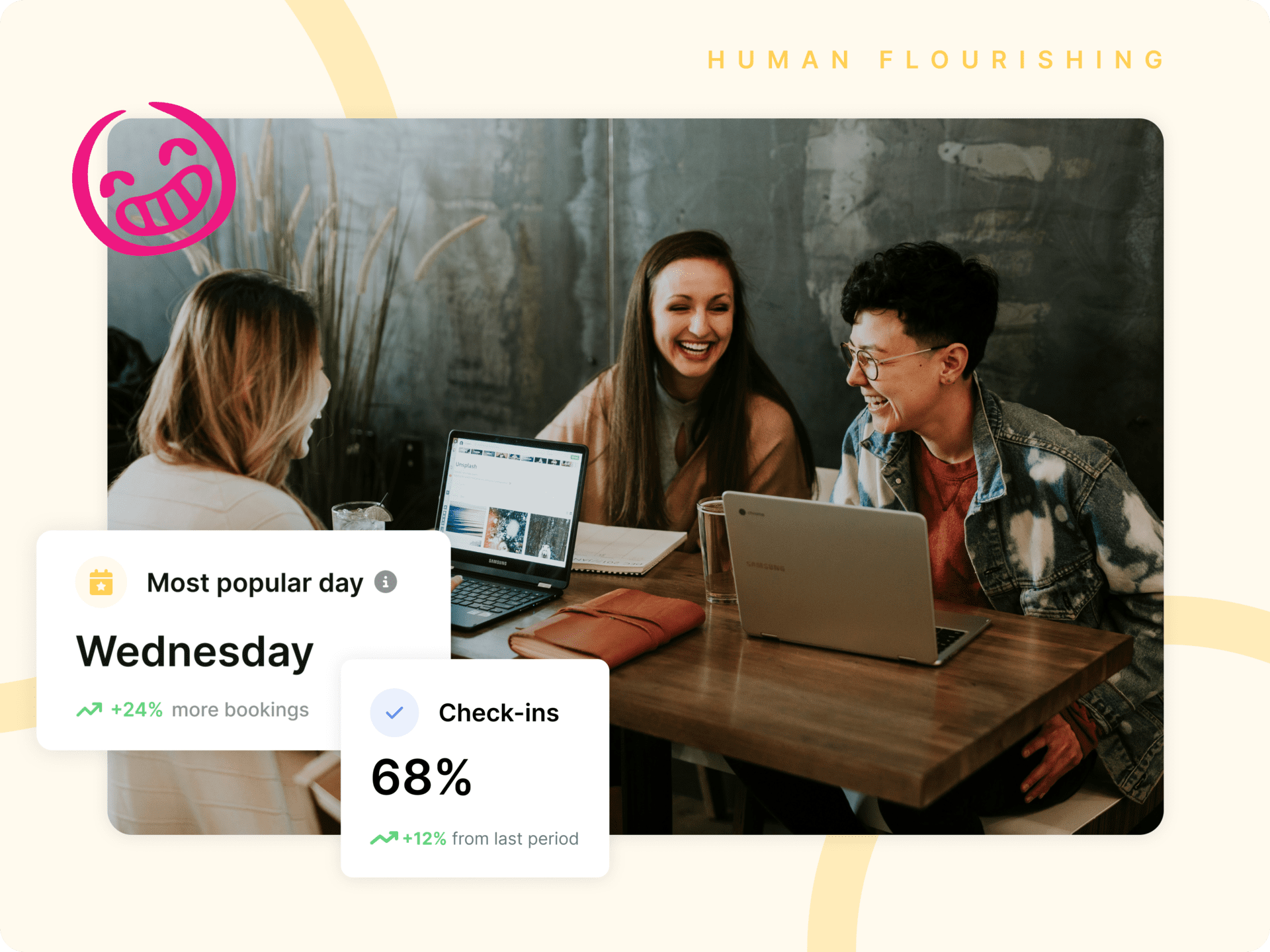As HR Managers, the shift towards a hybrid work model places you at the heart of transforming how your organization operates.
This evolution challenges you to redesign policies and culture to support both remote and in-office work.
Suddenly, your role expands beyond traditional HR functions to include championing flexible working practices.
This guide aims to assist you by providing strategies and insights tailored to HR Managers navigating the transition to a successful hybrid work environment.
Let’s embark on this journey.
Understanding The HR Role In Facilitating Hybrid Work
The HR department has always had people at its core.
But in an age where these people are spread out like never before, and their movement can be entirely unpredictable, helping your teams flourish can seem difficult. You may not know whether your teams are complying with your hybrid policy, or you may feel like you are slowly losing out on your office culture.
An HR manager’s role in today’s world of work requires finding a coordinated approach to hybrid work.
Nowadays, that involves understanding which hybrid work platform (or Integrated Workplace Management System) can help revitalize your office spaces and give you oversight of your employees’ schedules.
Your role is therefore likely to include:
- Understanding your company’s specific needs when it comes to a workplace management system
- Researching different hybrid operating platforms and finding one that fits with your company culture and helps guide hybrid policies
- Helping to ensure company-wide alignment with your chosen hybrid work partner and onboarding your teams
- Encouraging office attendance, especially during the winter months
Identifying Room Booking Needs From An HR Perspective
The first step towards finding a desk and room booking platform that works for you is understanding your specific organizational needs.
In order to do so, you might want to follow these three steps:
- Assess Current Hybrid Work Routines
Everyone is different, and it’s likely your employees have diverse hybrid work routines. Is there a pattern to how and where people get their work done? Can you identify distinct hybrid personas in your organizations? Are your teams motivated enough to come into the office? Understanding the attitudes of your people to hybrid work is the first step towards implementing a desk booking system that feels tailored to them. - Collect Input From All Departments
Just as hybrid work habits will differ on an individual level, departments will also vary in their approach to getting work done in this day and age. Make sure you are aligned with the specific approaches of different departments. Perhaps you see a strong need for Marketing to be supported for in-person work, or perhaps you need to factor in clear remote preferences from your Engineering team. Either way, the desk hoteling software you choose should fit around the needs of your departments. - Be Clear On Your Goals
What do you want to achieve by implementing a platform to help you navigate hybrid work? Is your company keen on reducing real estate costs by getting leaner about how to use physical space? Do you want to boost in-person collaborationand therefore productivity? Approaching hybrid work tools with a clear goal in mind will be important to ensuring they serve you and your teams best.

Selecting The Right Desk Booking System
So you’ve spoken to your teams, understood their attitudes to hybrid work, and decided what larger goals are most important to you and your organization.
Next up — choosing a hybrid work operating platform.
Here’s our recommended method for going about the search:
- Look Out For Essential Features
With plenty of desk and room booking systems available, it’s important to discern which ones truly cater to your needs. Keep an eye out for AI-driven platforms that provide smart recommendations on optimal times for desk bookings, and facilitate more meaningful in-person interactions among your employees. A system that delivers comprehensive analyticson the usage of your physical workspaces can also be invaluable. This kind of data not only helps in managing your resources more efficiently but also in planning for future workspace needs.
- Team Up With The IT Department
Collaborating with your IT team will be important to fully understanding the technical specifications, integration possibilities, and security protocols that come with a new piece of software. One of the most critical aspects to consider is how the solution will blend into your existing digital ecosystem—be it Slack, Microsoft Teams, or Google Workspace—to ensure your team can effortlessly book spaces and collaborate within their usual setup. By prioritizing a solution that seamlessly integrates with your current workflows, you’re setting the stage for a smooth transition to a hybrid work environment. - Focus On User-Friendly Design
Imagine getting excited about a new tool, only to find it’s a headache to use. That’s why the user interface (UI) and user experience (UX) of the hybrid work platform you choose should be top-notch, intuitive, and ready to use right out of the box. Good design is crucial, not just on desktop but on mobile too, ensuring your team can jump in quickly and actually enjoy using the platform. When a tool is easy and pleasant to use, adoption skyrockets, making everyone’s life easier. - Prioritize Collaboration For Employee Happiness
Ultimately, the goal of integrating desk hoteling software is to foster an environment where your employees can thrive together, significantly contributing to the success of your business. Opt for a hybrid management solution that not only facilitates regular space bookings for teamwork but also offers the flexibility to tailor and organize your office layout into distinct neighborhoods and zones dedicated to concentration. This approach doesn’t just enhance operational efficiency; it plays a pivotal role in boosting employee satisfaction by nurturing a collaborative and adaptable workspace. - Keep The Future In Mind
As time progresses, your team will expand, and your needs will evolve. Make sure that your chosen hybrid operating platform is capable of adapting alongside your organization. Consider whether the platform offers access to a network of on-demand workspaces, a necessity if your existing office space becomes insufficient for your growing team. The ideal desk booking software should equip you and your team with maximal flexibility, ensuring you can navigate significant shifts in your workforce and workspace requirements with ease.

Measuring The Impact Of Your Hybrid Operating Platform
Your journey has begun! You’ve done all of the necessary due diligence to understand how a desk booking platform can fit into your company’s workflow, and you’ve worked with IT to implement the platform smoothly and effectively.
But how do you know if it’s worked? Here are some handy ideas to keep your finger on the pulse of your platform’s impact on both employee satisfaction and space usage.
- Conduct regular employee surveys: Consider gathering feedback on a regular basis on key aspects like work-life balance and job satisfaction. These surveys will help you gauge how your team is receiving your new desk booking platform, and where opportunities for improvement lie.
- Keep an eye on the metrics: A fully-equipped desk and room booking platform should give you detailed insights into exactly how your employees are making use of the tool. Keeping an eye on these numbers will give you a good idea of how your platform is impacting team collaboration and cohesion. Measure changes in your in-house KPIs and see how they correlate with the implementation of your hybrid work platform.
- Monitor space usage: One of the largest opportunities that comes with a hybrid operating platform is the ability to understand how your spaces are being used on a daily basis. Check in as often as you can to gain insights into office or flexible workspace occupancy, and share the information with relevant stakeholders. You could be in with a chance of cutting down some major operational costs.
- Benchmark against industry practices: It’s always worth doing a quarterly check of your hybrid work practices and doing a quick scan into what other comparable companies are doing. The field of hybrid work software is always changing, and it’s important you feel like your platform is keeping up with industry standards.
Kadence: Supporting HR Managers In The Transition To Hybrid Work
As organizations worldwide embrace a hybrid work model, the HR department stands at the forefront of navigating what can feel like a complex transition.
Kadence offers a full suite of tools designed to streamline the hybrid work experience and ensure your teams stay happy and collaborative as they grow. We understand that the essence of a successful hybrid model lies not just in the technology, but in preserving the human connections that define a company’s culture.
By providing intuitive solutions for desk booking, space management, and team collaboration, Kadence ensures that the physical distance between team members does not translate into a cultural divide. Regular feedback mechanisms, detailed analytics on workspace usage, and AI-driven insights allow your HR department to measure and adapt your strategies for the good of your teams.
Kadence stands as more than just a tool for managing hybrid work; it is a partner in sustaining the dynamic, inclusive, and productive workplace cultures that you aim to cultivate through your work in HR.
If you want to learn more about how Kadence can help bring cohesion and collaboration to your workforce, you can find out more here.
If you’d like to see Kadence in action, don’t hesitate to get in touch and book a demo with us.




